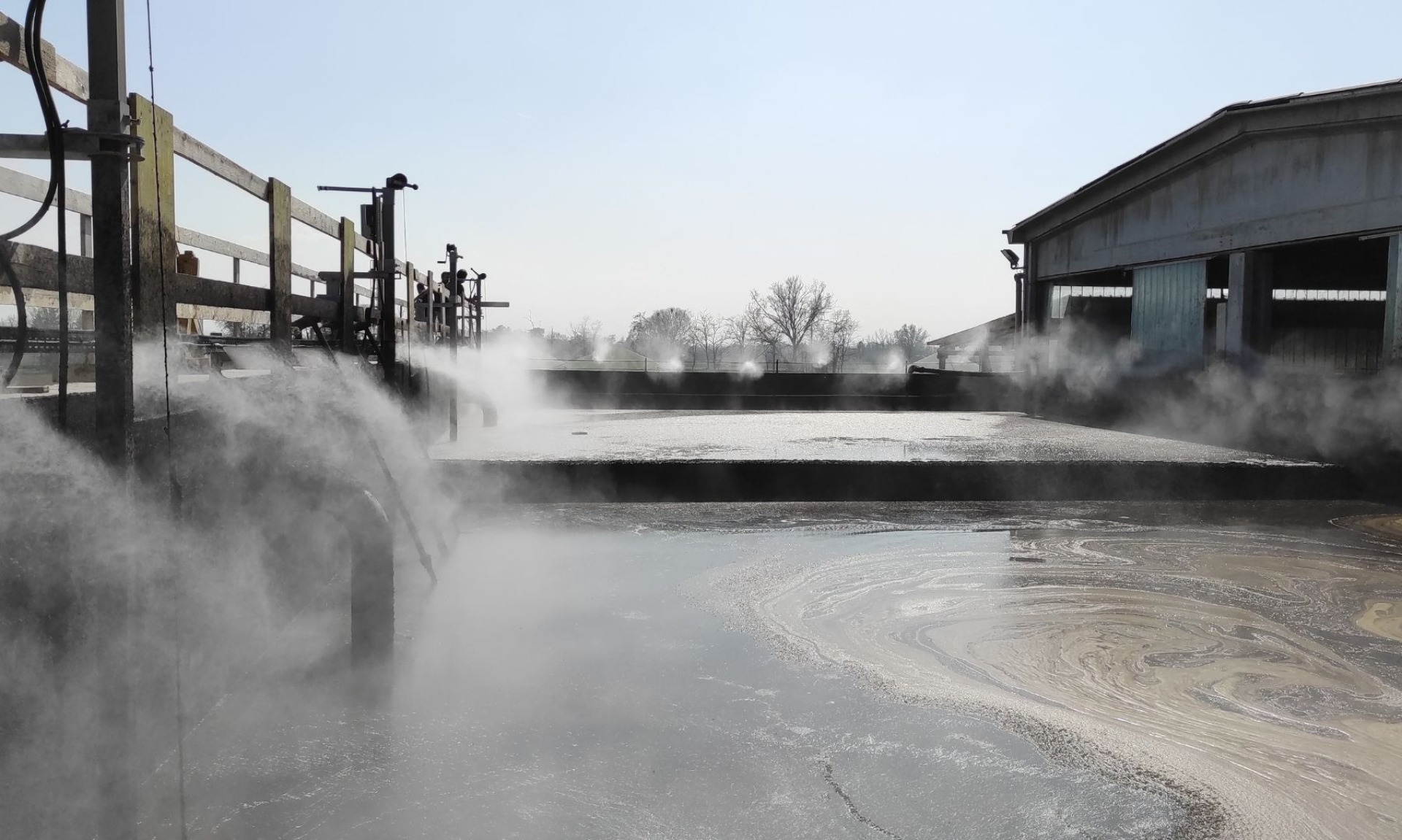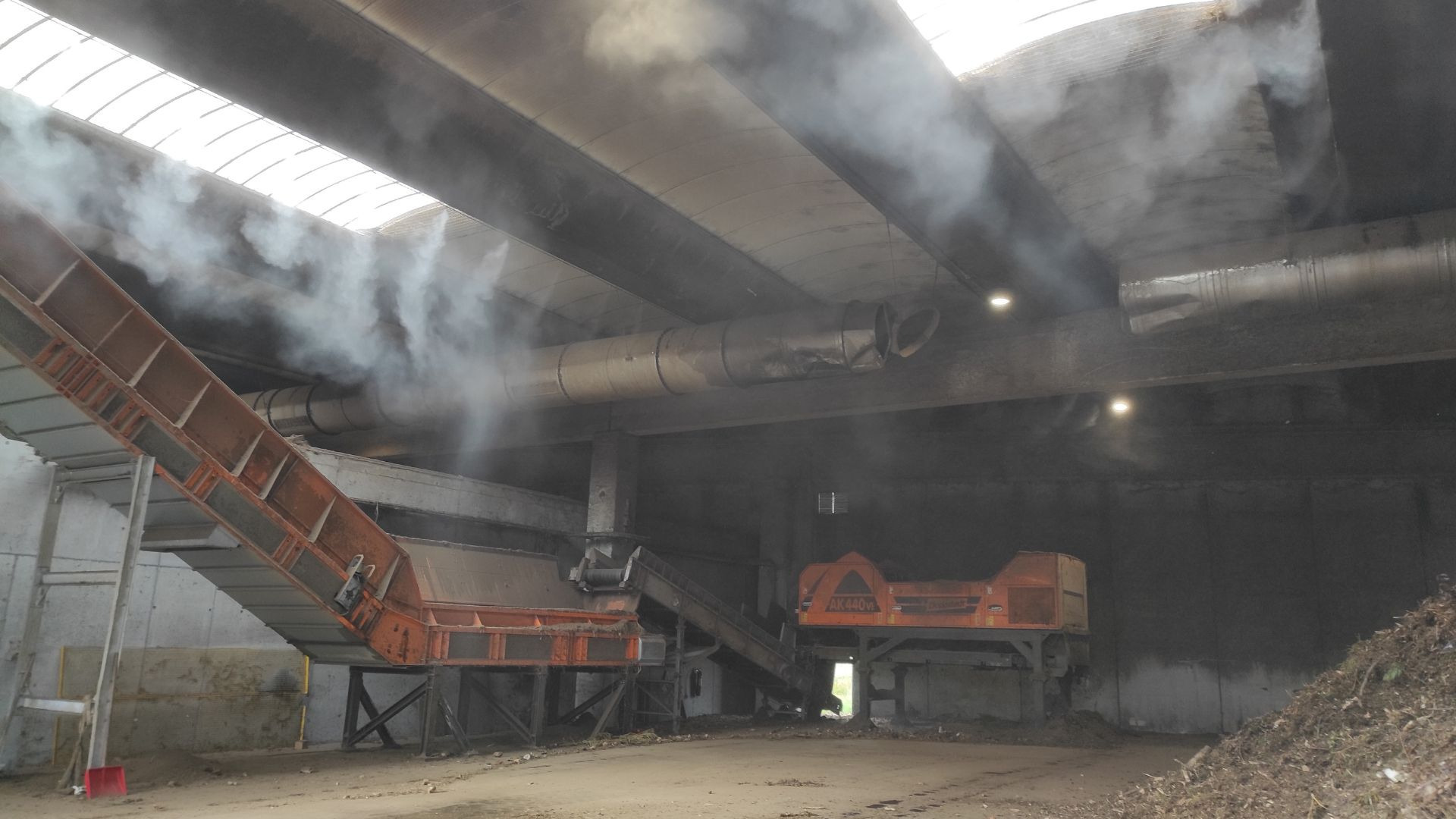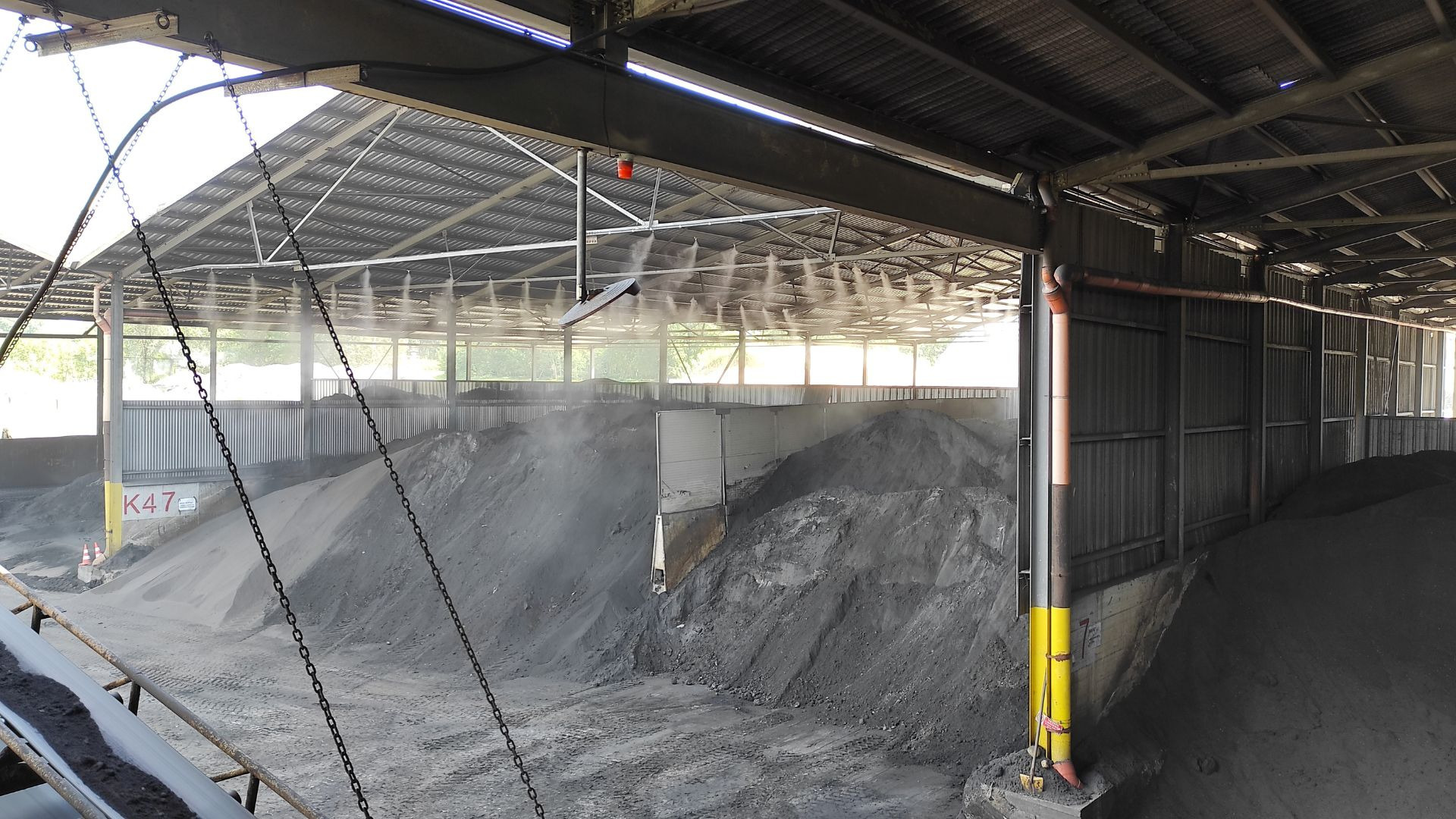
6/13/2025
The recycling industry is a fundamental pillar of the circular economy, turning waste into new resources. From metals to wood, inert materials to organics, every stage of recovery and transformation presents specific challenges, including the management of airborne particles and the control of unpleasant odors.
These factors not only affect the health and safety of workers, but also impact the surrounding environment and the company’s reputation.
Why is dust and odor management crucial in recycling?
Crushing, screening, shredding, and material handling operations generate high amounts of particulate matter.
These microparticles, if not properly managed, can:
- Pose a health risk: prolonged inhalation of fine dust can cause serious respiratory diseases in workers, such as silicosis, asbestosis, or other lung conditions.
- Compromise safety: combustible dust (such as wood or certain plastic particles) can create explosive atmospheres, while accumulation on surfaces can reduce visibility and increase the risk of accidents.
- Damage machinery and equipment: abrasion caused by solid particles can lead to premature wear of mechanical and electronic components, increasing maintenance costs and equipment downtime.
- Create environmental issues: the dispersion of particulate matter into the environment can contaminate soil and water, and cause discomfort for nearby communities.
At the same time, the processing of organic materials, mixed waste, or certain types of refuse can generate unpleasant and persistent odors. These not only make the working environment uncomfortable, but can also cause tensions with nearby residential areas, leading to complaints and, in some cases, regulatory penalties.
Effective solutions for a better working environment
To tackle these challenges, recycling industries require integrated solutions aimed at reducing particulate matter and odors. Among the most advanced and effective technologies are:
- High-pressure misting systems: these systems produce a fine mist of water droplets that, upon contact with airborne particles, weigh them down and cause them to settle to the ground. They are particularly effective in open or semi-open areas, conveyor belts, loading/unloading zones, and storage areas.
- Humidification/particulate control systems: beyond simple suppression, regulating atmospheric humidity can prevent the formation of dust itself, especially in processes that generate heat and dryness.
- Odor neutralization technologies: these solutions can include misting systems with added neutralizing or masking agents, odor barriers, or air ventilation and filtration systems for confined spaces.
The choice depends on the type and intensity of the odors.

Strategic advantages for the recycling industry
Investing in advanced environmental control technologies is not just a matter of regulatory compliance, but a competitive advantage:
- Improved health and safety: protects workers and reduces risks related to occupational diseases. • Increased operational efficiency: decreases machine downtime caused by wear and improves visibility in the work environment.
- Reduced environmental impact: contributes to a more sustainable and responsible corporate image.
- Better community relations: minimizes inconvenience to nearby residents and prevents disputes. We offer customized solutions for dust suppression and odor management, designed to ensure maximum effectiveness, energy efficiency, and long-lasting performance.
Don’t compromise the health of your employees or your company’s reputation. Contact us for a consultation.
